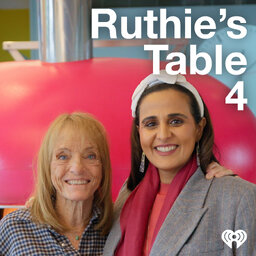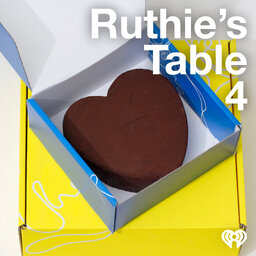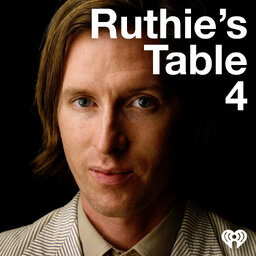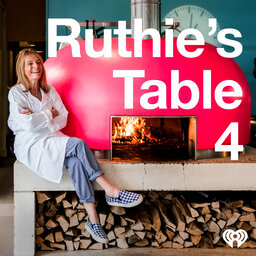There is no such thing as a simple phone call with my beautiful friend Christiane Amanpour. Asking, as I did yesterday, where she’s been she answers “Ukraine”, asking where she is going, she says, “Afghanistan”.
This is what it is like having a fearless friend you love, who puts herself in danger, reporting facts, holding people to account, and telling the truth from wherever she is and whoever she is talking to.
Christiane goes on biking trips, retreats to her house in the Isle de Re, and flies to New York for a day to see her son. The food of Persia is her passion.
Today, I’m going to interview the most brilliant interviewer there is, today I’m the fearless one.
For more than 30 years The River Cafe in London, has been the home-from-home of artists, architects, designers, actors, collectors, writers, activists, and politicians. Michael Caine, Glenn Close, JJ Abrams, Steve McQueen, Victoria and David Beckham, and Lily Allen, are just some of the people who love to call The River Cafe home.
On Ruthie’s Table 4, Rogers sits down with her customers—who have become friends—to talk about food memories. Table 4 explores how food impacts every aspect of our lives. “Foods is politics, food is cultural, food is how you express love, food is about your heritage, it defines who you and who you want to be,” says Rogers.
Each week, Rogers invites her guest to reminisce about family suppers and first dates, what they cook, how they eat when performing, the restaurants they choose, and what food they seek when they need comfort. And to punctuate each episode of Table 4, guests such as Ralph Fiennes, Emily Blunt and Alfonso Cuarón, read their favourite recipe from one of the best-selling River Cafe cookbooks.
Table 4 itself, is situated near The River Cafe’s open kitchen, close to the bright pink wood-fired oven and next to the glossy yellow pass, where Ruthie oversees the restaurant. You are invited to take a seat at this intimate table and join the conversation.
For more information, recipes, and ingredients, go to https://shoptherivercafe.co.uk/
Instagram: www.instagram.com/therivercafelondon/
Facebook: https://en-gb.facebook.com/therivercafelondon/
For more podcasts from iHeartRadio, visit the iheartradio app, apple podcasts, or wherever you listen to your favourite shows.
In 1 playlist(s)
Ruthie's Table 4
Welcome to Ruthie's Table 4 hosted by Ruthie Rogers, co-founder and chef of The River Cafe in London…Social links
Follow podcast
Recent clips

Her Excellency Sheikha Al-Mayassa bint Hamad bin Khalifa Al Thani
28:28

Bonus: Valentine's Day At The River Cafe
12:17

Wes Anderson At Gagosian, Paris
18:08
 Ruthie's Table 4
Ruthie's Table 4